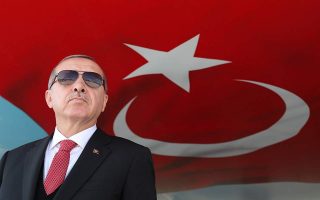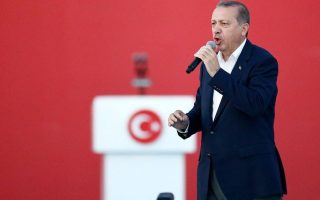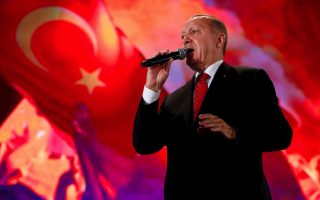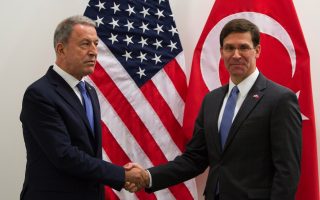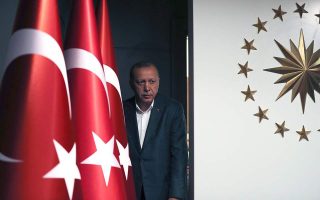Turkey’s Syria operation in a different light
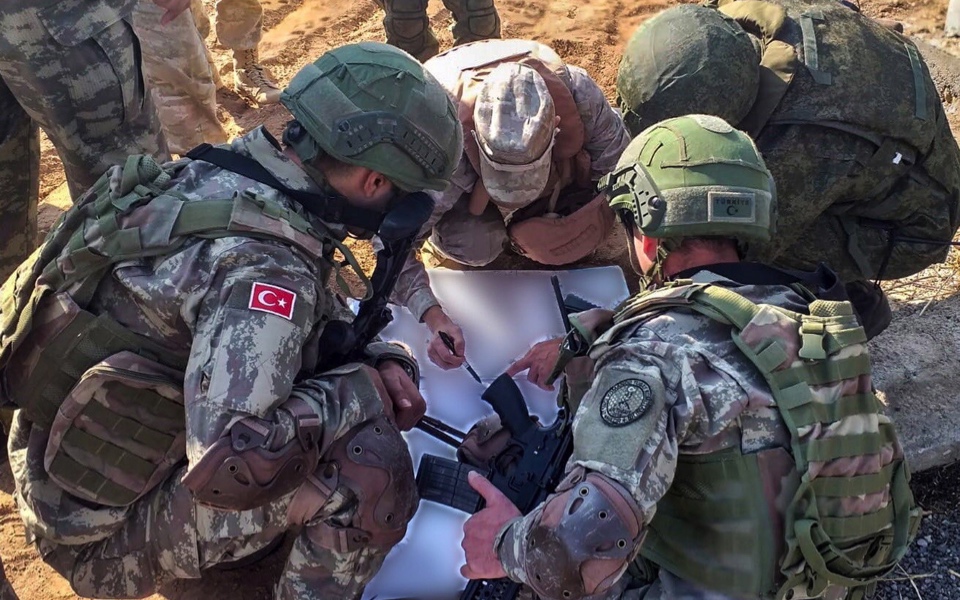
How does Turkish President Recep Tayyip Erdogan feel about Turkey’s military operations in Syria? Is he satisfied with developments? What lessons has he learned from his decisions and from the international community’s reaction? These questions are fundamental in assessing how he may act in Syria from now on, but also in the Eastern Mediterranean, which is of greater direct interest to us.
At first glance, Erdogan appears to have accomplished only a small part of what he was aiming for, as he has managed to gain control of just 20 percent of the area he had been eyeing. It is also the most arid and remote stretch of the Turkish-Syrian border, so it is unlikely that he will be able to transfer a significant portion of the 2-3 million refugees he wanted to relocate there. Turkey’s operations also appear not to have dealt a significant blow to Kurdish fighters; they seem to have joined forces with the Syrian army of Bashar al-Assad with the purpose of fighting the Turks together.
Even though the United States abandoned the Kurds, its operation against Islamic State leader Abu Bakr al-Baghdadi was carried out in cooperation with Kurdish forces. Last but not least, the leader of the Kurdish militia in Syria, Mazloum Kobani – once a close associate of the jailed Kurdish leader Abdullah Ocalan – has been invited to visit Washington, despite Ankara’s consternation at hearing the news.
This, however, is one way of looking at the recent events. There is another point of view, which is likely the one adopted by Erdogan. “Operation Peace Spring” is the third Turkish incursion in Syria that has resulted in it seizing territory. The Turkish president actually announced his intentions from the dais at the United Nations General Assembly in September, even bringing maps to his presentation. No one went on the record to express concern at his goal to relocate 2-3 million Syrian refugees there in what is effectively an attempt at the ethnic cleansing of the border area.
International reactions to the incursion itself were lackluster. The UN Security Council was unable to agree on a statement. The European Union made statements condemning the operation but balked when it came to imposing sanctions. An agreement to ban the sale of arms to Turkey on a pan-European level was not reached and even the decisions of certain individual countries concerned future sales rather than existing contracts, which continue to be carried out. American sanctions against two Turkish ministers were lifted 15 days after being lackadaisically imposed.
Turkey’s occupation of Syrian territory received the blessing of the United States and Russia. In short, Erdogan managed to keep a foot in both boats – the American and the Russian – without falling into the water. With two different international ceasefire agreements, the two great powers accepted the new status quo and told Turkish forces they could remain in the areas they had seized. This prompted Turkey’s foreign minister to state that the USA and Russia deemed the incursion legal.
The two great powers also accepted that Turkey has vital interests – or Lebensraum, as the Germans would have once called it – 30 kilometers inside Syrian territory. The Kurdish militia was forced to retreat from the area, while Turkey gained the ability to act militarily within Syria’s borders. Joint Russian and Turkish patrols will be held along the Syrian side of the border with Turkey.
Erdogan is used to flouting the rulebook on the domestic front. What he has learned from the Syria operation is that he is an international player who has no reason to stay put. He is rewarded for taking initiatives, even when these are a blatant violation of international law. He may well believe that further down the line, another (illegal) initiative may bring him even more gains. This could pertain to Syria, but also to the Eastern Mediterranean. The front he opened in Syria is close to calming down, giving him the opportunity to focus on the Mediterranean in the best way he knows how: by bending the rules to suit his aims.
Angelos Syrigos is an associate professor of international law and foreign policy at Athens’ Panteion University. He is also a New Democracy MP.
